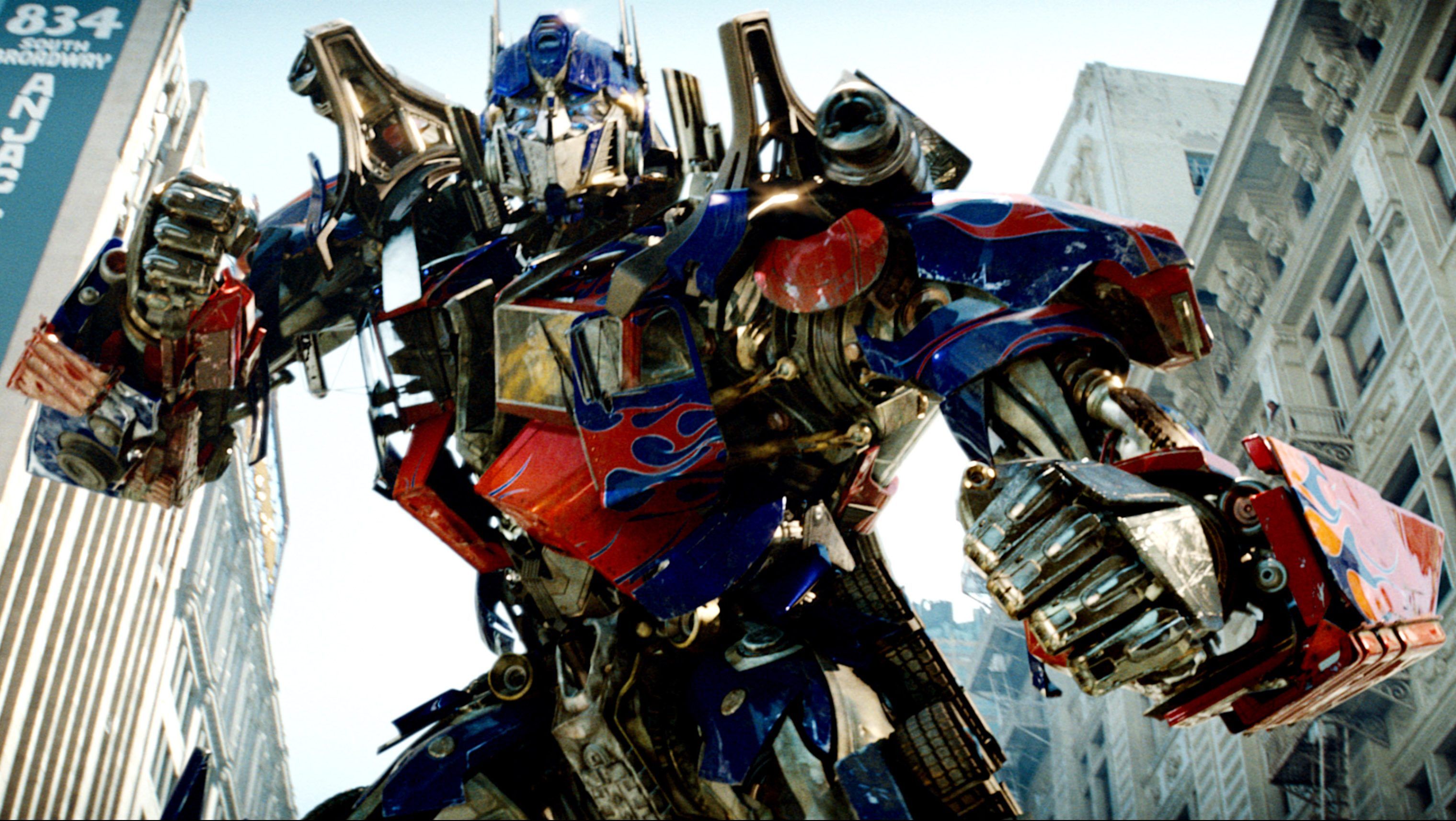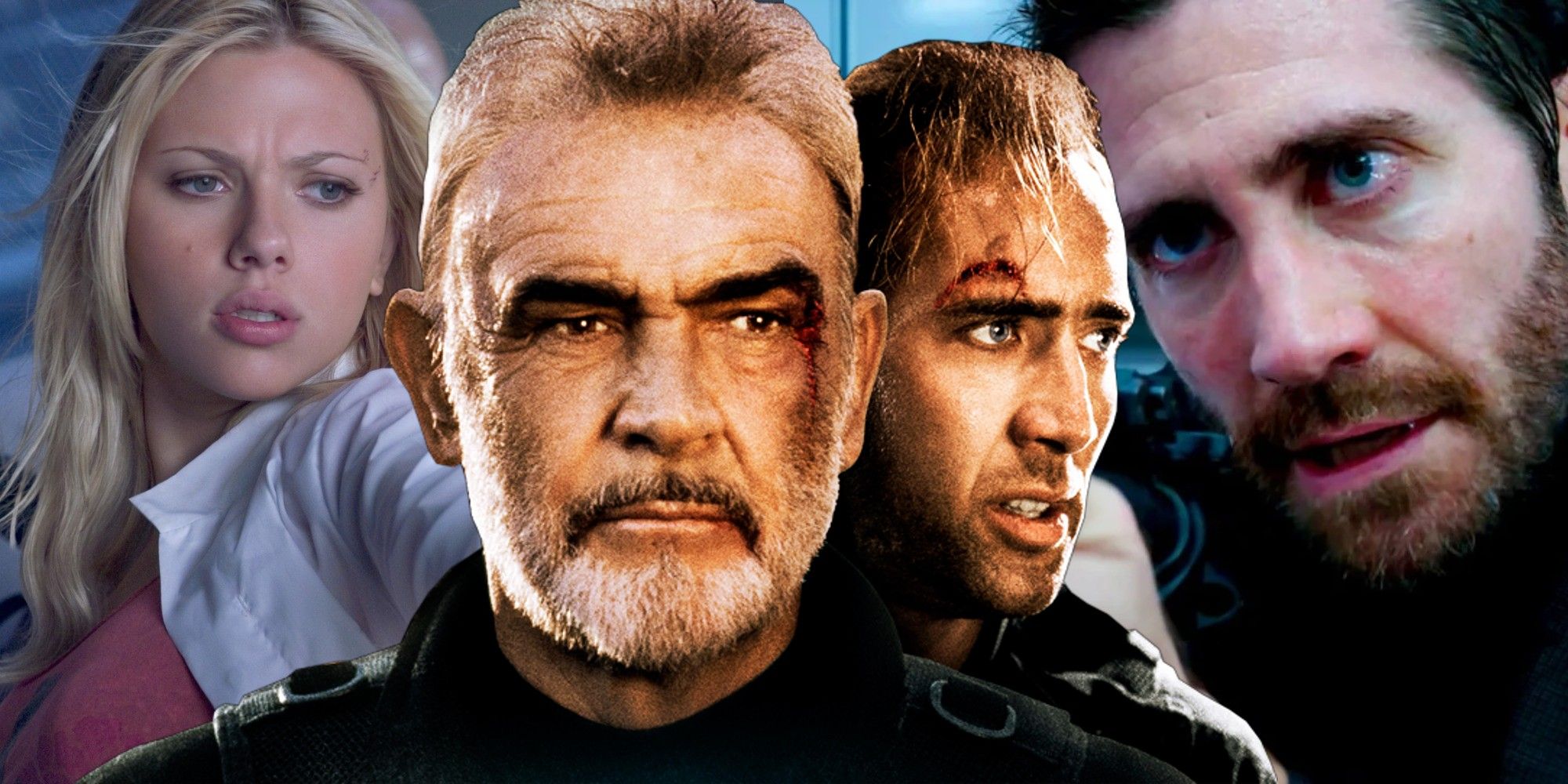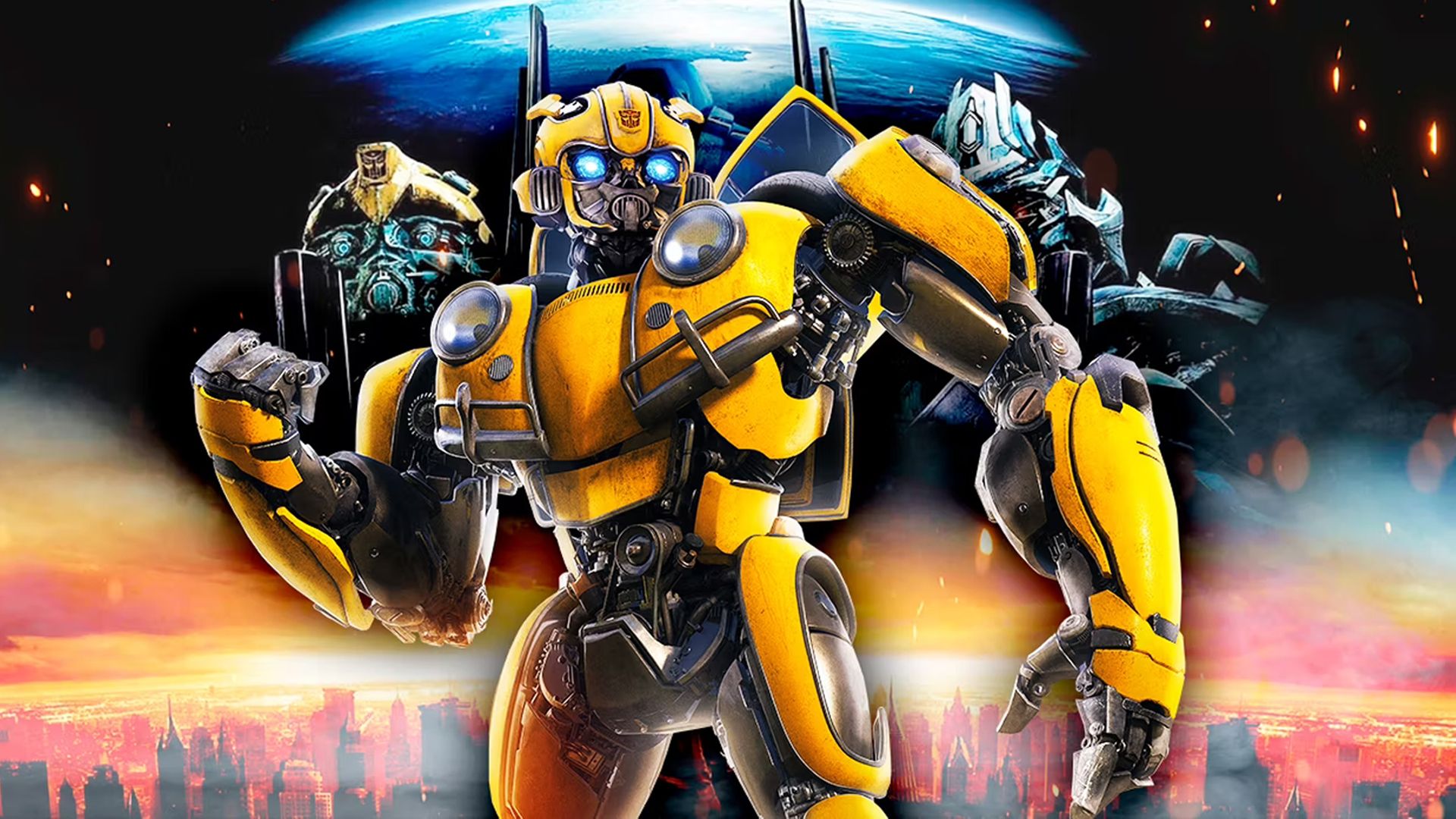Michael Bay Movies: The Explosive Legacy Of A Visionary Director
Table of Contents
- Who is Michael Bay? A Brief Biography
- The Bayhem Blueprint: Signature Directorial Style
- A Filmography of Firepower: Key Michael Bay Movies
- Box Office Domination: Michael Bay's Commercial Success
- Critical Reception and Public Perception
- Michael Bay's Impact on the Action Genre
- Beyond the Explosions: Themes and Storytelling
- The Future of Bayhem: What's Next for the Director?
- Conclusion
Who is Michael Bay? A Brief Biography
Michael Benjamin Bay was born on February 17, 1965, in Los Angeles, California. From an early age, Bay displayed a keen interest in filmmaking, even blowing up his toys with firecrackers and filming the explosions as a child. This early fascination with pyrotechnics would later become a hallmark of his professional career. He attended Wesleyan University, graduating in 1986 with a degree in English and Film. Following his undergraduate studies, he pursued a Master of Fine Arts at the Art Center College of Design in Pasadena, specializing in film. Bay began his career directing music videos for artists like Meat Loaf, Tina Turner, and Divinyls, and commercials for major brands such as Nike, Coca-Cola, and Budweiser. His commercial work quickly gained attention for its dynamic visuals, fast pacing, and cinematic quality, earning him numerous awards, including the Clio Award for Commercial Director of the Year. This strong foundation in visual storytelling and high-impact advertising proved to be the perfect springboard for his transition into feature films. It's worth noting that in the corporate world, titles like "Director" or "Managing Director" often refer to specific hierarchical positions within a company, similar to "职称" (professional titles) in some contexts, as seen in various foreign enterprises, particularly in finance. However, in the film industry, the role of a "director" like Michael Bay is fundamentally different. It signifies the primary creative and artistic leader of a film project, responsible for guiding the actors, overseeing the crew, and shaping the overall vision and execution of the movie. It’s a role of immense creative authority and responsibility, far beyond a mere corporate job title.| Attribute | Detail |
|---|---|
| Full Name | Michael Benjamin Bay |
| Date of Birth | February 17, 1965 |
| Place of Birth | Los Angeles, California, USA |
| Nationality | American |
| Occupation | Film Director, Producer |
| Education | Wesleyan University (BA), Art Center College of Design (MFA) |
| Active Years | 1980s–present |
| Known For | High-octane action films, explosions, rapid editing, distinctive visual style |
| Production Company | Platinum Dunes |
The Bayhem Blueprint: Signature Directorial Style
The term "Bayhem" has become synonymous with Michael Bay's unique directorial style, a portmanteau of his surname and the word "mayhem." It encapsulates the kinetic, often chaotic, and always spectacular visual language that defines his films. Understanding Bayhem is key to appreciating the impact of director Michael Bay movies on the cinematic landscape.Explosions, Action, and Visual Spectacle
Perhaps the most obvious characteristic of a Michael Bay film is the sheer scale of its action sequences and the liberal use of practical and visual effects, particularly explosions. Bay is a master of spectacle, designing sequences that are grand, elaborate, and often defy the laws of physics. Whether it's a car chase through crowded city streets, a military skirmish, or an alien invasion, his films consistently deliver a visual feast designed to overwhelm the senses. This commitment to large-scale destruction and thrilling set pieces ensures that audiences are always on the edge of their seats, experiencing the full force of the cinematic moment.Cinematography: Low Angles, Slow Motion, and Sun Flares
Beyond the pyrotechnics, Bay's visual grammar is highly distinctive. He frequently employs low-angle shots, often circling characters or objects, creating a sense of power and dynamism. His use of slow-motion is iconic, particularly during heroic moments or dramatic reveals, allowing the audience to savor key actions or emotional beats. Another signature is the ubiquitous presence of lens flares and dramatic lighting, often giving his scenes a glossy, almost hyper-real aesthetic. These stylistic choices contribute to a sense of heightened reality, making even mundane moments feel epic and visually striking.Editing and Pacing: A Relentless Rhythm
The editing in Michael Bay movies is notoriously fast-paced, often described as frenetic. Shots are typically short, cutting rapidly between different angles and perspectives, particularly during action sequences. This rapid cutting creates a sense of urgency and adrenaline, propelling the narrative forward at a breakneck speed. While some critics argue this can be disorienting, it's undeniably effective in maintaining a high level of energy and excitement throughout his films. The relentless rhythm ensures there's rarely a dull moment, keeping the audience engaged through sheer kinetic force.A Filmography of Firepower: Key Michael Bay Movies
Michael Bay's filmography is a testament to his consistent output of blockbuster action films. Here's a look at some of his most notable works:- Bad Boys (1995): Bay's directorial debut, this buddy-cop action-comedy starring Will Smith and Martin Lawrence, established his signature style and proved his ability to deliver commercially successful films. It was a critical and commercial hit, launching his career.
- The Rock (1996): Often considered one of Bay's best films, this action thriller starring Sean Connery and Nicolas Cage showcased a more refined version of his style, blending intense action with compelling character dynamics. It solidified his reputation as a master of the genre.
- Armageddon (1998): A global phenomenon, this disaster film about a team of oil drillers sent to destroy an asteroid heading for Earth was a massive box office success, despite mixed critical reviews. It perfectly encapsulated Bay's penchant for high stakes, emotional melodrama, and spectacular destruction.
- Pearl Harbor (2001): A historical war epic, this film attempted to blend romance with the devastating attack on Pearl Harbor. While visually stunning, it received significant criticism for its historical inaccuracies and character development, but still performed well at the box office.
- Transformers Series (2007-present): The franchise that perhaps most defines the modern era of director Michael Bay movies. Beginning in 2007, Bay directed the first five installments of this highly lucrative series, bringing the iconic Hasbro robots to life with groundbreaking CGI and explosive action. These films became global box office giants, despite often receiving scathing critical reviews for their convoluted plots and excessive length.
- Pain & Gain (2013): A departure from his typical large-scale blockbusters, this black comedy crime film based on a true story showcased a different side of Bay. With a smaller budget and a focus on character-driven dark humor, it earned some of his best critical reviews in years, proving he could excel outside the realm of pure spectacle.
- 13 Hours: The Secret Soldiers of Benghazi (2016): A more grounded and serious war film, this movie depicted the 2012 attack on the American diplomatic compound in Benghazi, Libya. It was praised for its intense action sequences and realistic portrayal of combat, marking another shift in tone for the director.
- Ambulance (2022): A high-octane thriller largely set within an ambulance, this film demonstrated Bay's ability to create intense, confined action. It was lauded for its relentless pacing and impressive drone cinematography, showcasing that even after decades, Bay continues to innovate his visual approach.
Box Office Domination: Michael Bay's Commercial Success
Despite often being a target for critics, Michael Bay's films consistently perform exceptionally well at the box office. His movies have collectively grossed billions of dollars worldwide, making him one of the most commercially successful directors in Hollywood history. The *Transformers* franchise alone has generated over $4.8 billion globally across the films he directed, underscoring his immense appeal to a broad international audience. This commercial success can be attributed to several factors: his mastery of delivering pure entertainment, his ability to create visually stunning and memorable action sequences, and his consistent appeal to the coveted young male demographic. Studios continue to entrust him with massive budgets because they know his films are almost guaranteed to turn a substantial profit. He understands the mechanics of a global blockbuster, crafting experiences that translate across cultures and languages, relying on universal themes of heroism, conflict, and awe-inspiring spectacle. The sheer scale and ambition of director Michael Bay movies are a powerful draw, promising an immersive cinematic experience that few other filmmakers can consistently deliver.Critical Reception and Public Perception
The critical reception of Michael Bay's work is, to put it mildly, polarized. He is a director who often divides opinions sharply, inspiring both fervent adoration and strong disdain.The Love-Hate Relationship with Critics
Film critics often criticize Bay's films for their perceived lack of substantive plot, over-reliance on explosions, thin character development, and sometimes problematic humor or political undertones. Many of his films, particularly the *Transformers* series, have received overwhelmingly negative reviews on platforms like Rotten Tomatoes. Critics frequently accuse him of prioritizing spectacle over storytelling, leading to films that are visually impressive but emotionally hollow. However, even his detractors often acknowledge his technical prowess in staging large-scale action and his undeniable talent for creating visually dynamic sequences. Some critics have also softened their stance on his earlier works, recognizing their impact and entertainment value in hindsight.Audience Engagement and Fan Loyalty
In stark contrast to critical opinion, audiences often flock to director Michael Bay movies. His films resonate strongly with viewers who seek pure escapism, adrenaline-pumping action, and a cinematic experience that pushes the boundaries of visual effects. Fans appreciate his commitment to delivering big, loud, and exciting blockbusters that don't shy away from spectacle. The consistent commercial success, even in the face of critical panning, highlights a significant disconnect between what critics value and what a large segment of the movie-going public desires. For many, a Michael Bay film is an event, a guarantee of an exhilarating ride that doesn't necessarily need deep philosophical meaning to be enjoyable.Michael Bay's Impact on the Action Genre
Michael Bay has undeniably left an indelible mark on the action genre. His influence can be seen in countless films that have followed in his wake, adopting his rapid editing, dynamic camera work, and emphasis on large-scale destruction. He helped popularize a certain aesthetic of action filmmaking in the late 1990s and early 2000s, characterized by high production values, extensive use of CGI and practical effects, and a relentless pace. His films pushed the boundaries of what was technically possible, especially with the *Transformers* series, which showcased incredibly complex CGI transformations and battles on a scale rarely seen before. He demonstrated that audiences had an insatiable appetite for visually stunning, high-octane entertainment, influencing other filmmakers to escalate their own action sequences. While his style has its critics, it's impossible to deny that Bay has been a trendsetter, shaping the visual language and expectations for modern blockbusters. He proved that spectacle, when executed with his particular brand of bravado, could be a powerful driving force for commercial success.Beyond the Explosions: Themes and Storytelling
While often accused of prioritizing explosions over plot, a closer look at director Michael Bay movies reveals recurring themes and storytelling patterns that underpin his work.Military Valor and American Patriotism
A prominent theme in many of Bay's films is military valor and American patriotism. From *The Rock* and *Armageddon* to *Pearl Harbor* and *13 Hours*, his movies frequently feature heroic military personnel, often depicted as selfless protectors of American ideals. There's a strong sense of duty, sacrifice, and national pride woven into the fabric of these narratives. While some find this portrayal overly simplistic or jingoistic, it resonates with a significant portion of his audience and contributes to the heroic, larger-than-life feel of his protagonists. His reverence for the armed forces is often palpable, presenting them as the ultimate saviors in times of crisis.Underdog Stories and Redemption Arcs
Despite the grand scale, many of Bay's films feature characters who are underdogs or seeking redemption. In *Armageddon*, a ragtag team of oil drillers, not astronauts, are tasked with saving the world. In *Pain & Gain*, the characters are flawed individuals striving for the American Dream, albeit through misguided and criminal means. Even in the *Transformers* series, the human characters often start as ordinary individuals thrust into extraordinary circumstances, rising to the occasion. These arcs provide a human anchor to the spectacle, allowing audiences to connect with the characters' struggles and triumphs amidst the chaos.The Future of Bayhem: What's Next for the Director?
After decades in the director's chair, Michael Bay shows no signs of slowing down. While he stepped away from directing the main *Transformers* films, he continues to produce various projects and explore new directorial challenges. His recent film, *Ambulance* (2022), was a critical success compared to his previous blockbusters, showcasing a more contained yet equally intense action style. This suggests a potential evolution in his approach, perhaps focusing on more grounded thrillers while still maintaining his signature kinetic energy. Fans eagerly anticipate what "Bayhem" he will unleash next. Whether it's another sprawling sci-fi epic, a gritty military drama, or a return to the buddy-cop genre, one thing is certain: a Michael Bay movie will always be an experience. His enduring presence in Hollywood underscores his unique ability to connect with audiences on a visceral level, delivering the kind of explosive, adrenaline-fueled entertainment that has become his cinematic trademark.Conclusion
Michael Bay is more than just a director; he is a brand, a cinematic force synonymous with unparalleled action, breathtaking visuals, and a relentless pursuit of spectacle. From his early music videos to his multi-billion-dollar blockbusters, he has consistently delivered films that provoke strong reactions, both positive and negative. While critics may debate the artistic merit of director Michael Bay movies, his commercial success and undeniable impact on the action genre speak for themselves. He has carved out a distinct niche, creating a style so recognizable it has its own moniker: "Bayhem." This signature blend of explosions, dynamic camera work, and rapid-fire editing has influenced countless filmmakers and entertained millions worldwide. Whether you love them or love to hate them, Michael Bay's films are an integral part of modern cinema's landscape, proving that sometimes, all an audience truly wants is a thrilling, unforgettable ride. What are your favorite Michael Bay movies, and what do you think defines his unique style? Share your thoughts in the comments below, and don't forget to explore our other articles on iconic filmmakers and the evolution of cinematic genres!- Hampton Inn Majestic Chicago Theatre District
- Bernie Leadon
- Best Western River North Hotel
- Funny Monday Memes
- Strong Water Anaheim

Best Michael Bay Movies, Ranked

The 10 Best Michael Bay Movies (According To Rotten Tomatoes)

What Are All the Michael Bay Transformers Movies in Order?